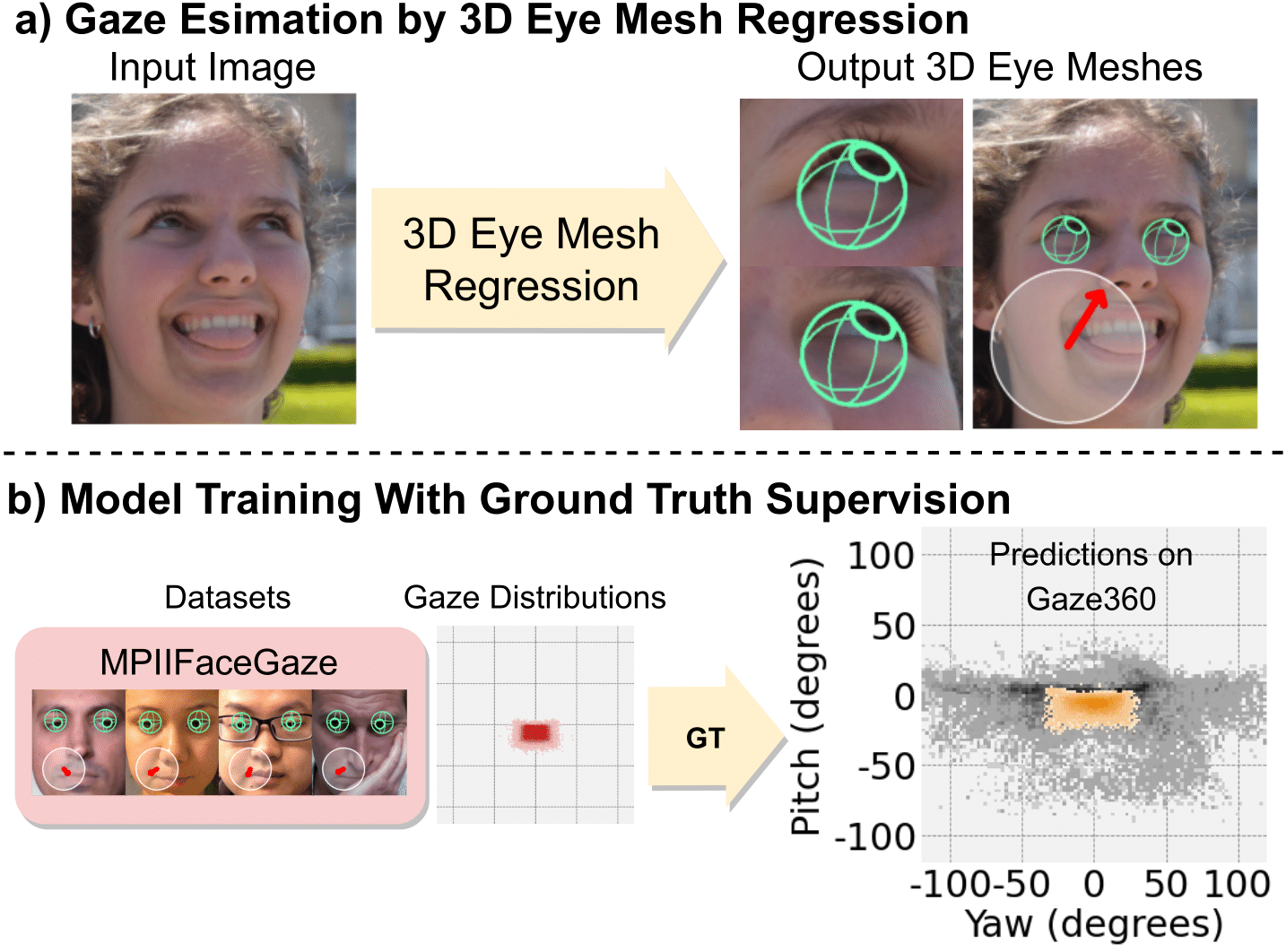3DGazeNet: Generalizing Gaze Estimation with Weak-Supervision from Synthetic Views
Developing gaze estimation models that generalize well to unseen domains and in-the-wild conditions remains a challenge with no known best solution. This is mostly due to the difficulty of acquiring ground truth data that cover the distribution of faces, head poses, and environments that exist in the real world. Most recent methods attempt to close the gap between specific source and target domains using domain adaptation. In this work, we propose to train general gaze estimation models which can be directly employed in novel environments without adaptation. To do so, we leverage the observation that head, body, and hand pose estimation benefit from revising them as dense 3D coordinate prediction, and similarly express gaze estimation as regression of dense 3D eye meshes. To close the gap between image domains, we create a large-scale dataset of diverse faces with gaze pseudo-annotations, which we extract based on the 3D geometry of the scene, and design a multi-view supervision framework to balance their effect during training. We test our method in the task of gaze generalization, in which we demonstrate improvement of up to 30% compared to state-of-the-art when no ground truth data are available, and up to 10% when they are. The project material are available for research purposes at https://github.com/Vagver/3DGazeNet.
PDF Abstract





 FFHQ
FFHQ
 Gaze360
Gaze360
 GazeCapture
GazeCapture